|اسٹور لانچنگ کے مرحلے میں ہے! براہ کرم ابھی آرڈر نہ کریں۔!|
| Sign up for our newsletter to receive the latest deals and updates |
| Hassle-free 07-day returns on all products |
| Visit our showroom at Abdullah Cookware Store for an in-store shopping experience |
|Shop securely with SSL-certified, encrypted credit card payments at our store|
|"Store Not Ready Yet – Please Wait to Order!"|
|اسٹور لانچنگ کے مرحلے میں ہے! براہ کرم ابھی آرڈر نہ کریں۔!|
| Sign up for our newsletter to receive the latest deals and updates |
| Hassle-free 07-day returns on all products |
| Visit our showroom at Abdullah Cookware Store for an in-store shopping experience |
|Shop securely with SSL-certified, encrypted credit card payments at our store|
|"Store Not Ready Yet – Please Wait to Order!"|
30% off on table sofa
Contemporary Setting
Wooden Material | 2 Year Waranteee

70% Flate
Wooden Stool
Gift Available | Free Delivery

30% Flate
Kabino Sideboard
3.5-inch (89 mm) | 4 Wide Box
- Showpieces
- Housekeeping
- Tableware
- Artificial Plants
- Houseware & Room
- Vintage Decorative
- Bedding Seats
- Indoor & Outdoor
- Wall Accent
- Bedding Sets
- Indoor Plants
- Wall Accents
- Blankets
- Lighting & Lamps
- Pressure Cookware
- Cabinetry
- Lighting & Lamps
- Dining & Bar
- Mattress & Accent
- Dining & Bar
- Mattress Topper
- Furnishing
- Refurbished
- Home Decor & Art
- Showpieces
- Non-Stick
- Homekeeping
Creating Your Own Skincare with Organic Ingredients
Overview
Natural and organic skincare products are becoming more and more popular in the beauty business as people’s awareness of health and wellbeing grows. As consumers become more aware of the ingredients in their products, they are seeking more effective, chemical-free cosmetic alternatives. Using organic ingredients, the DIY skincare trend is growing in popularity as more people take responsibility for what they put on their skin. This blog delves into the advantages of using natural skincare products, gives advice on key organic components, and shows you how to make your own at home.
A Cultural Revolution: Natural Beauty’s Ascent
Recognizing the importance of organic skincare products
Growing public awareness of the possible risks associated with synthetic chemicals found in many commercial goods has resulted in a sharp increase in demand for natural and organic skincare products in recent years. Once widely used in skincare products, parabens, sulfates, and synthetic scents are now under investigation for possible health hazards, such as skin irritation, hormone disruption, and even cancer. Customers are choosing clean, green, and sustainable alternatives, which has created a burgeoning market for natural beauty products as a result of this cultural change toward transparency and wellbeing.
The advantages of natural skincare
Many of the advantages of organic skincare go beyond appearances. First of all, as compared to their synthetic equivalents, organic products are usually higher in nutrients. Natural oils that are rich in vitamins, antioxidants, and vital fatty acids, such as rosehip, jojoba, and argan, provide the skin with profound nourishment. Second, skincare products made organically are often greener. Manufacturers often use sustainable sourcing to obtain ingredients, and their manufacturing methods often result in a lower carbon footprint. Finally, people with sensitive skin or those who prefer a holistic approach to beauty will find that utilizing organic skincare lowers the chance of exposure to harmful chemicals, making it a safer alternative.
Crucial organic skincare ingredients
Butters and natural oils
Natural oils and butters are the primary ingredients in many homemade skincare products. Because of their high emollience, they help to protect and moisturize the skin. You need the following essential oils and butters for your collection of organic skincare products:
Coconut Oil: Well-known for its intense moisturizing qualities, coconut oil is an adaptable component that works well in body butters and cleansers alike. Because of its high content of lauric acid, which has antibacterial qualities, it is beneficial for skin that breaks out easily.
Shea Butter: The nuts of the shea tree yield shea butter, known for its potent moisturizing properties. It is rich in vitamins A and E, which aid in the healing and restoration of damaged skin.
Jojoba Oil: This oil is useful for regulating oil production since it closely resembles the skin’s natural sebum. All skin types may benefit from its non-comedogenic properties and lightweight nature.
Argan Oil: Known as “liquid gold,” argan oil is a potent source of vital fatty acids and antioxidants. It works well for anti-aging therapies, diminishing the visibility of fine lines and wrinkles.
Botanical Extracts
Botanical extracts provide skincare products with powerful therapeutic advantages. These plant-based extracts are high in active ingredients that may help with a range of skin issues.
Aloe Vera: Known for its healing and calming qualities, aloe vera is a common component in natural skincare products. It works wonders for inflammation, irritation, and sunburn.
Green Tea Extract: Packed with polyphenols, green tea extract acts as a potent antioxidant to protect the skin from environmental harm. Because it has anti-inflammatory properties, it is excellent for reducing redness and irritation.
Chamomile extract: Chamomile is well-known for its relaxing properties on the skin. With its ability to reduce inflammation and encourage healing, it is especially advantageous for skin types that are more sensitive.
All-natural Exfoliants
An essential component of any skincare regimen is exfoliation, which helps to encourage cell turnover and remove dead skin cells. A mild but effective method using natural exfoliants can achieve smoother, more luminous skin.
Sugar is a natural humectant that exfoliates dead skin cells and draws moisture into the skin. Body scrubs benefit greatly from its use, and you can combine it with oils to enhance their moisture content.
Oatmeal is an excellent, mild exfoliator for inflamed or sensitive skin. In addition, it has calming qualities that make it an excellent complement to face scrubs.
Coffee grounds work wonders as an exfoliator, increasing blood flow and diminishing the appearance of cellulite. They’re ideal for energizing body washes.
Homemade Skincare: Methods and Recipes
Not only is making your own skincare products at home more affordable, but you can also alter the formulas to fit your unique skin type and requirements. Here are a few simple recipes that use organic products and turn out great.
1. Rich Facial Cleanser
Components:
1/4 cup of unrefined honey
one-fourth cup coconut oil
One-fourth cup castile soap
Ten drops of essential lavender oil
Guidelines:
Put the coconut oil and raw honey in a bowl. Mix well to blend.
Add castile soap and lavender essential oil to the blend.
Using a pump, pour the mixture into a bottle.
Use it as a daily face cleanser. After gently massaging it into moist skin, rinse with warm water.
Advantages:
This mild but efficient cleanser gets rid of pollutants without depleting the skin’s natural oils. As a natural humectant, honey draws moisture into the skin, while coconut oil hydrates the skin deeply. With the relaxing impact of lavender essential oil, this cleanser is perfect for all skin types.
2. Mask for Hydration of the Face
Components:
Two teaspoons of gelled aloe vera
One spoonful of honey
Avocados contain one tablespoon of oil.
One teaspoon of powdered turmeric
Guidelines:
In a small basin, combine the aloe vera gel, honey, and avocado oil.
Mix in the turmeric powder until a homogeneous paste forms.
On clean skin, apply the mask; do not apply it near the eyes.
Rinse with warm water after leaving on for 15 to 20 minutes.
Advantages:
This moisturizing mask works wonders for reviving dull or dry skin. While avocado oil offers vital fatty acids to feed the skin, aloe vera and honey combine to calm and hydrate. The brightening impact of turmeric helps to even out skin tone.
3. Body Scrub with Exfoliation
Components:
Half a cup of sugar made from organic cane
one-fourth cup coconut oil
One spoonful of coffee grinds
Ten drops of essential peppermint oil
Guidelines:
Combine sugar, ground coffee, and coconut oil in a bowl.
Incorporate peppermint essential oil and mix well.
Store the scrub in an airtight container.
Use the shower to energize and exfoliate the skin, paying special attention to trouble spots.
Advantages:
In addition to removing dead skin cells, this exfoliating body scrub increases circulation, leaving the skin feeling refreshed and smooth. While coconut oil moisturizes and peppermint essential oil invigorates the senses, the mix of sugar and coffee effectively exfoliates the skin.
4. Revitalizing Nighttime Serum
Components:
One spoonful of oil from rosehips
One spoonful of argan oil
Five drops of essential frankincense oil
Five drops of essential lavender oil
Guidelines:
Mix argan oil with rosehip oil in a little dropper container.
Add the essential oils of lavender and frankincense.
To combine the oils, gently shake the container.
Before going to bed, apply a few drops to the face and neck and gently massage them into the skin.
Advantages:
Rich in vital fatty acids and antioxidants, this restorative night serum is perfect for providing overnight skin regeneration and nourishment. Argan oil offers intense hydration, while rosehip oil is well-known for its anti-aging qualities, which help to lessen the appearance of fine lines and wrinkles. The calming and restorative properties of frankincense and lavender essential oils make this serum an opulent addition to your evening skincare regimen.
5. Calm Lip Balm
Components:
One tablespoon of pelleted beeswax
Shea butter, one tablespoon
One tablespoon of coconut oil
Five drops of essential peppermint oil
Guidelines:
Melt the coconut oil, shea butter, and beeswax pellets in a double boiler.
After melting, remove from heat and mix with peppermint essential oil.
Transfer the blend into tiny lip balm containers or tubes, and let it cool and set.
Use it every day to maintain moisturized and supple lips.
Advantages:
This calming lip balm is ideal for hydrating and shielding parched lips. Beeswax offers a shield, while coconut oil and shea butter give intense hydration and nourishment. Adding a cool sensation, peppermint essential oil makes this lip balm simple to apply and effective.
The Morality of Natural Skincare
Durability in Production and Sourcing
The potential for natural skincare to be more sustainable than traditional beauty products is one of its main benefits. But it’s crucial to make sure the foods you use come from ethical sources. For example, search for businesses that use sustainable farming and harvesting practices when buying essential oils. Don’t forget to take the environment into account while making packaging decisions. You can reduce waste, use glass containers instead of plastic ones, and reuse containers to make your DIY skincare regimen more environmentally friendly.
Natural Skincare: Fair Trade and Ethical Practices
Consider the ethical implications when sourcing organic components for DIY skincare products. Africa, South America, and other developing nations are the origins of several natural compounds, including cocoa butter, shea butter, and argan oil. Because they are essential to their livelihood, local people typically gather and prepare these substances. Ensuring the ethical and fair trade acquisition of these goods contributes to the promotion of sustainable development.
What is a fair trade?
A fair trade certification guarantees the ethical creation of goods, guaranteeing fair salaries, safe working environments, and respect for workers. Additionally, it guarantees adherence to environmental regulations, encouraging environmentally friendly agricultural methods that save ecosystems and land. Fair trade certification is frequently applicable to the following substances in natural skincare context:
Shea Butter: Typically collected by West African women’s cooperatives, fair trade shea butter guarantees that these women are paid fairly for their labor, enabling them to sustain their families and communities.
Fair trade argan oil, derived from Moroccan argan trees, provides a stable income for Berber women who have been crafting this “liquid gold” for many years. Additionally, it promotes environmentally friendly harvesting practices that preserve argan forests.
Cocoa Butter: Fair trade cocoa butter ensures livable salaries and safe working conditions for farmers in places like Ghana and the Ivory Coast. Moisturizers and balms often use it.
Fair Trade’s Significance for Natural Skincare
It is essential to endorse fair trade standards in the skincare sector for several reasons.
Empowering Communities: By giving farmers and laborers in developing nations fair compensation and career progression possibilities, fair trade policies strengthen such communities. For these communities, better access to healthcare, education, and other essential services is often the result of economic empowerment.
Encouraging Gender Equality: Women in rural areas create a large portion of the natural components used in beauty products. Initiatives promoting fair trade often center on empowering these women by giving them the tools and assistance they need to become self-sufficient business owners and respected members of their communities.
Ensuring Product Quality: Fair trade items often exhibit superior quality due to the use of age-old, centuries-old techniques in their production. These techniques usually include meticulous, manual procedures that guarantee the substances’ potency and purity.
Environmental Stewardship: Fair trade principles also support sustainable farming and harvesting techniques that safeguard the environment and conserve biodiversity. This entails saving water, stopping deforestation, and staying away from dangerous chemicals and pesticides.
How to Spot Fair Trade Substances
When procuring components for your own skincare products, seek out fair trade certificates from vendors or on packaging. Typical fair trade certifications include the following:
Globally recognized Fairtrade International (FLO) accreditation guarantees that goods adhere to strict social, economic, and environmental requirements.
Fair for Life: By addressing a wide range of social and environmental requirements, this certification guarantees the ethical and sustainable production of goods.
Rainforest Alliance: Although not quite a fair trade certification, the Rainforest Alliance mark certifies that goods are made in a manner that upholds worker rights and preserves ecosystems.
Source Ethical Beyond Fair Trade
Fair trade is a big step in the right direction for ethical sourcing, but there are other ethical and sustainable practices to take into account. As an illustration:
Cruelty-Free: Ensure that neither the components nor the finished goods underwent animal testing. Seek out certificates attesting to no cruelty, such as the Leaping Bunny or PETA’s cruelty-free emblem.
Certified Organic: This certification ensures the cultivation of ingredients without the use of artificial fertilizers or pesticides, promoting environmental and skin health.
Small Batch Production: Another strategy to guarantee moral behavior is to assist artisanal, small-scale manufacturers. These manufacturers often put sustainability and quality ahead of quantity.
In summary
Making your own skincare products with organic ingredients gives you control over what you put on your skin, making it a powerful and fulfilling experience. But as the movement for natural beauty gains momentum, it’s critical to approach it with an attitude that prioritizes both individual well-being and global responsibility. Selecting products that are ethically and fairly obtained helps create a more sustainable and equitable world. It also supports the people who provide us with these natural gems and ensures that your skincare regimen aligns with your beliefs. By doing this, you may take advantage of nature’s beauty guilt-free, knowing that you are contributing to a better society.
Add comment Cancel reply
Enjoy this post? Join our newsletter
Don’t forget to share it
💥 BULK BUY PROMOTION - UP TO 5% DISCOUNT! 💥
Related Articles
This website uses cookies to improve your experience.
By using this website you agree to our Privacy Policy.



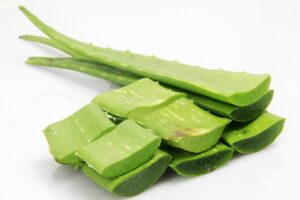

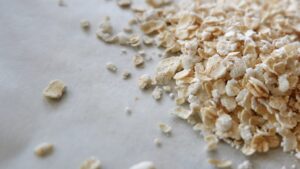

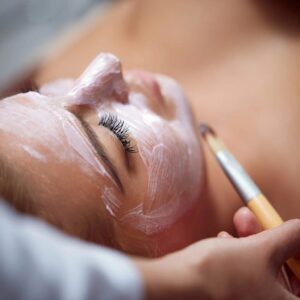
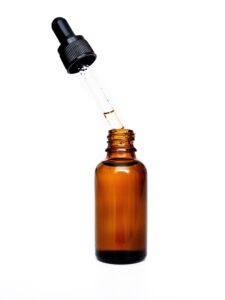
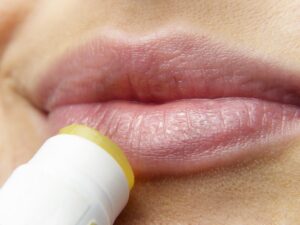

0 comments
ABcookwareStore
You made a easy understandable blog for the most complicated subject.